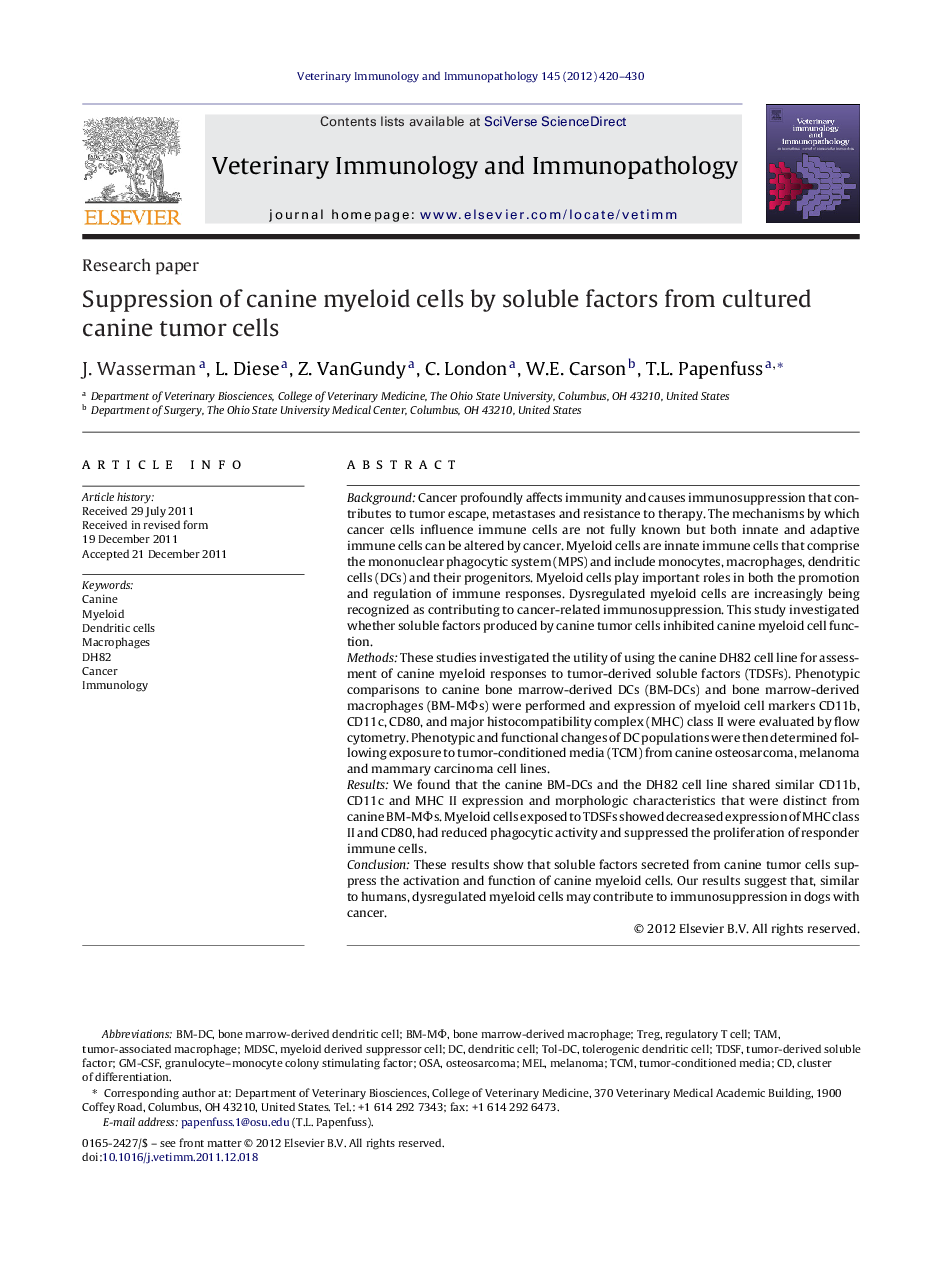| کد مقاله | کد نشریه | سال انتشار | مقاله انگلیسی | نسخه تمام متن |
|---|---|---|---|---|
| 2461944 | 1555061 | 2012 | 11 صفحه PDF | دانلود رایگان |

BackgroundCancer profoundly affects immunity and causes immunosuppression that contributes to tumor escape, metastases and resistance to therapy. The mechanisms by which cancer cells influence immune cells are not fully known but both innate and adaptive immune cells can be altered by cancer. Myeloid cells are innate immune cells that comprise the mononuclear phagocytic system (MPS) and include monocytes, macrophages, dendritic cells (DCs) and their progenitors. Myeloid cells play important roles in both the promotion and regulation of immune responses. Dysregulated myeloid cells are increasingly being recognized as contributing to cancer-related immunosuppression. This study investigated whether soluble factors produced by canine tumor cells inhibited canine myeloid cell function.MethodsThese studies investigated the utility of using the canine DH82 cell line for assessment of canine myeloid responses to tumor-derived soluble factors (TDSFs). Phenotypic comparisons to canine bone marrow-derived DCs (BM-DCs) and bone marrow-derived macrophages (BM-MΦs) were performed and expression of myeloid cell markers CD11b, CD11c, CD80, and major histocompatibility complex (MHC) class II were evaluated by flow cytometry. Phenotypic and functional changes of DC populations were then determined following exposure to tumor-conditioned media (TCM) from canine osteosarcoma, melanoma and mammary carcinoma cell lines.ResultsWe found that the canine BM-DCs and the DH82 cell line shared similar CD11b, CD11c and MHC II expression and morphologic characteristics that were distinct from canine BM-MΦs. Myeloid cells exposed to TDSFs showed decreased expression of MHC class II and CD80, had reduced phagocytic activity and suppressed the proliferation of responder immune cells.ConclusionThese results show that soluble factors secreted from canine tumor cells suppress the activation and function of canine myeloid cells. Our results suggest that, similar to humans, dysregulated myeloid cells may contribute to immunosuppression in dogs with cancer.
Journal: Veterinary Immunology and Immunopathology - Volume 145, Issues 1–2, 15 January 2012, Pages 420–430